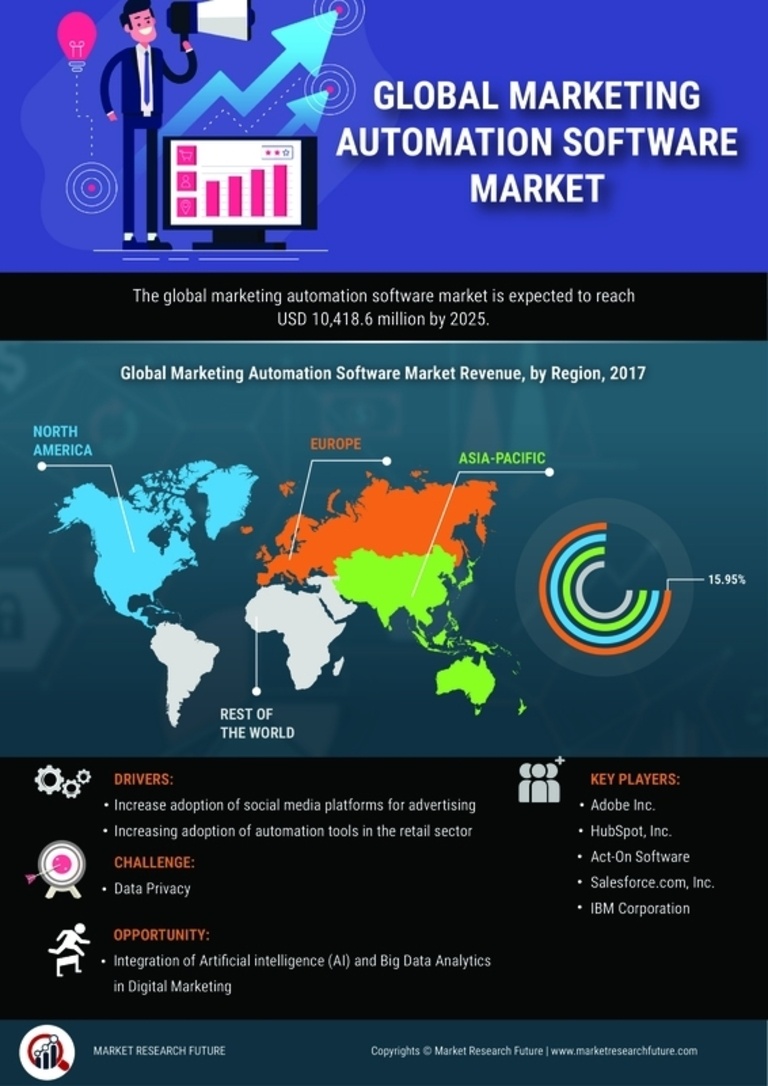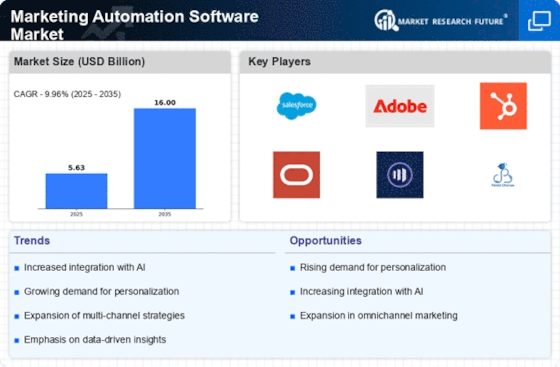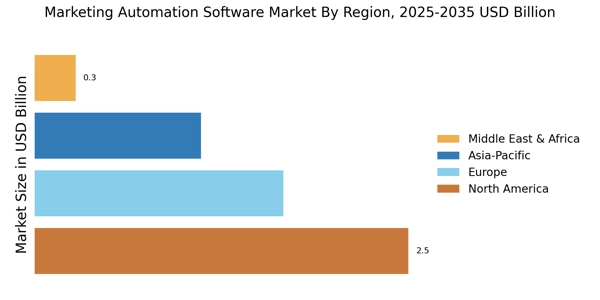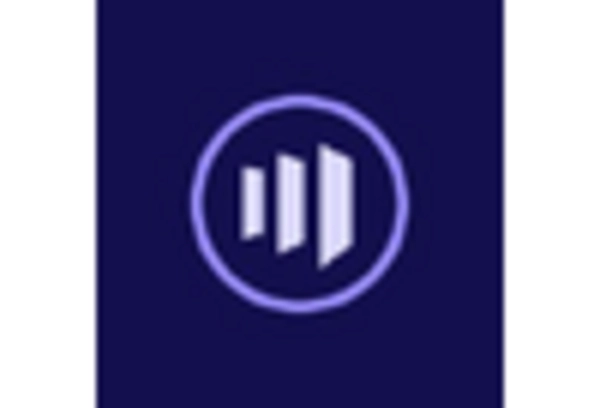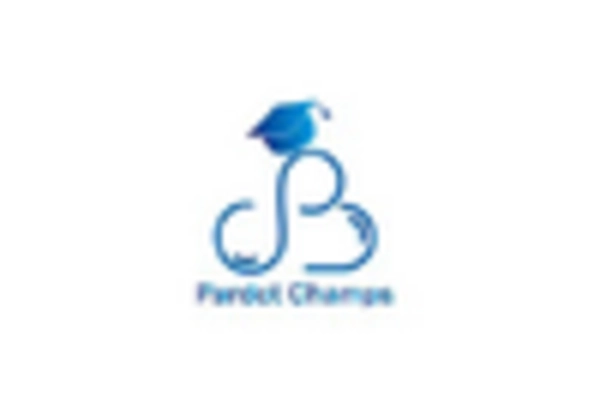Increased Demand for Personalization
The Marketing Automation Software Market is witnessing a pronounced shift towards personalization. Businesses are increasingly recognizing the necessity of tailoring their marketing efforts to meet individual customer preferences. This trend is driven by the growing expectation of consumers for personalized experiences, which can enhance engagement and conversion rates. According to recent data, companies that utilize marketing automation tools to deliver personalized content can see conversion rates increase by up to 20%. As a result, organizations are investing in sophisticated marketing automation solutions that enable them to segment their audiences effectively and deliver targeted messages. This heightened focus on personalization is likely to propel the growth of the Marketing Automation Software Market, as more businesses seek to leverage data analytics and customer insights to refine their marketing strategies.
Integration of Advanced Technologies
The Marketing Automation Software Market is experiencing a notable integration of advanced technologies such as artificial intelligence and machine learning. These technologies are enhancing the capabilities of marketing automation tools, allowing for more sophisticated customer segmentation, predictive analytics, and automated content generation. The incorporation of AI-driven insights enables marketers to anticipate customer behavior and tailor their strategies accordingly. As a result, businesses are increasingly adopting marketing automation solutions that incorporate these advanced technologies to stay competitive. The market for AI in marketing is projected to grow significantly, indicating a strong trend towards automation that leverages cutting-edge technology. This integration is likely to drive innovation within the Marketing Automation Software Market, as companies seek to enhance their marketing effectiveness and efficiency.
Expansion of Digital Marketing Channels
The Marketing Automation Software Market is significantly influenced by the expansion of digital marketing channels. As businesses increasingly adopt online platforms for their marketing efforts, the demand for automation tools that can manage these channels efficiently is on the rise. The proliferation of social media, email marketing, and content marketing has created a complex landscape that necessitates the use of automation software to streamline operations. Data indicates that companies utilizing marketing automation can achieve a 14.5% increase in sales productivity. This trend suggests that organizations are recognizing the value of integrating various digital channels into a cohesive marketing strategy, thereby driving the growth of the Marketing Automation Software Market. The ability to automate multi-channel campaigns allows businesses to reach their target audiences more effectively and efficiently.
Rising Need for Efficiency and Cost Reduction
The Marketing Automation Software Market is being propelled by the rising need for efficiency and cost reduction among businesses. Organizations are continuously seeking ways to optimize their marketing processes and reduce operational costs. Marketing automation software provides a solution by streamlining repetitive tasks, allowing marketing teams to focus on strategic initiatives. Data suggests that companies that implement marketing automation can reduce marketing overhead by as much as 12%. This efficiency not only leads to cost savings but also enhances productivity, enabling teams to execute campaigns more effectively. As businesses strive to maximize their return on investment, the demand for marketing automation solutions that facilitate efficiency and cost reduction is likely to grow, further driving the expansion of the Marketing Automation Software Market.
Growing Emphasis on Data-Driven Decision Making
In the Marketing Automation Software Market, there is a growing emphasis on data-driven decision making. Organizations are increasingly leveraging analytics to inform their marketing strategies, leading to more effective campaigns and improved ROI. The ability to collect, analyze, and act on data is becoming a critical component of successful marketing efforts. Recent statistics reveal that businesses that utilize data-driven marketing are six times more likely to be profitable year-over-year. This trend underscores the importance of marketing automation tools that provide robust analytics capabilities, enabling marketers to track performance metrics and optimize their campaigns in real-time. As companies continue to prioritize data-driven approaches, the demand for advanced marketing automation solutions is expected to rise, further fueling the growth of the Marketing Automation Software Market.
